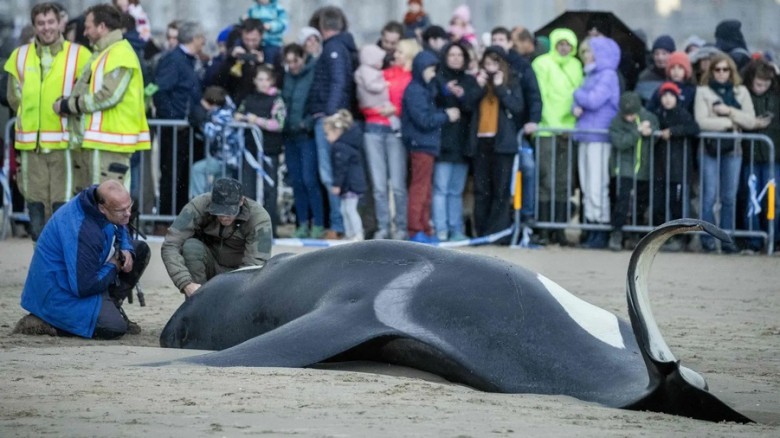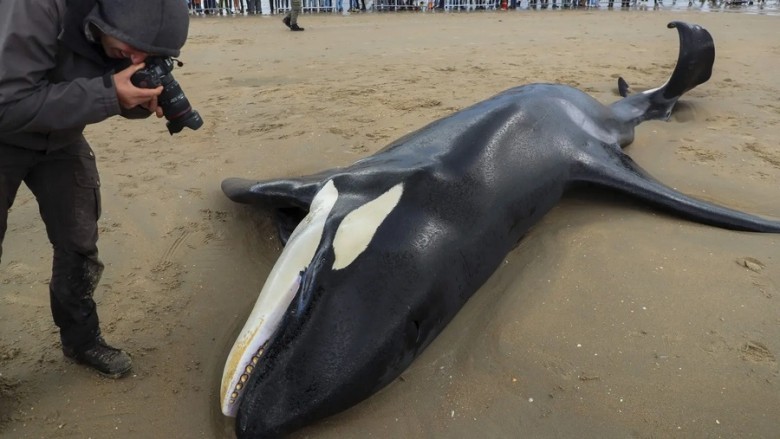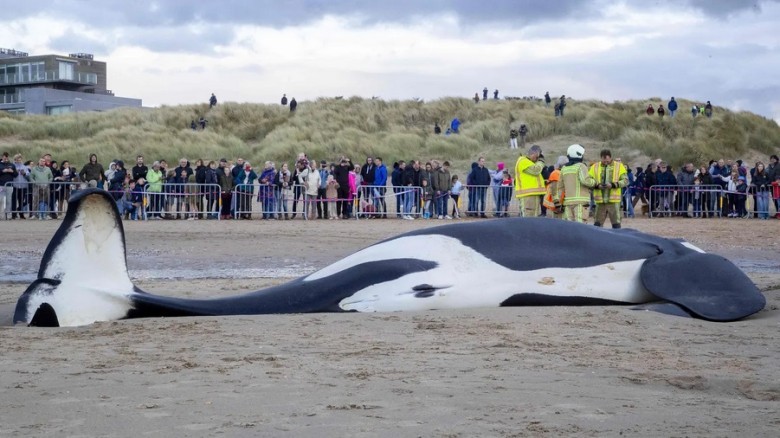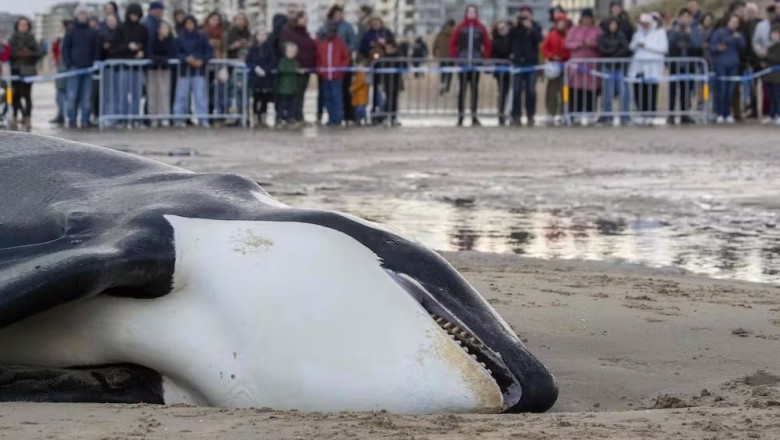Emaciated Orca Stranded on Belgian Coast Raises Concerns
On October 29, a distressing scene unfolded on the Belgian North Sea coast as an emaciated killer whale, commonly known as an orca, became stranded. This unusual incident has left experts and locals bewildered, urging a closer investigation into the circumstances leading to the tragic event.
The mystery surrounding the orca's stranding has led to many questions and concerns. Although it was seen swimming earlier in the morning, the whale was later discovered beached on the shores of the Belgian resort town of "De Panne" in a visibly weakened state. Sadly, the orca's condition deteriorated rapidly, and it passed away shortly after being washed ashore. The extraordinary location of this occurrence in the southern North Sea, combined with the whale's emaciated appearance, necessitates a thorough autopsy to determine the cause of its demise.

This incident marks the first reported stranding of an orca on the Belgian coast in 173 years. Historical records dating back to 1850 reveal a similar perplexing discovery that puzzled observers. Attempting to guide the slender killer whale back into the open sea, rescue boats were deployed after the initial sighting. Unfortunately, these efforts proved fruitless, indicating that the animal may have been aware of its deteriorating condition and impending fate. As the community grapples with the heart-wrenching nature of this event, an autopsy scheduled for October 30th aims to provide clarity regarding the circumstances surrounding the orca's tragic demise.

The unusual nature of this event has sparked discussions among experts and local communities regarding possible factors contributing to the orca's weakened state and subsequent stranding. As scientists prepare to conduct a thorough examination of the animal's remains, there is a collective hope that the autopsy will unveil crucial insights into potential environmental, biological, or anthropogenic influences that may have played a role in the distressing condition of the orca.
The discovery of the malnourished and stranded orca has refocused attention on the conservation and protection of marine ecosystems. It serves as a poignant reminder of the delicate balance that sustains the diverse marine life of the ocean and highlights the urgent need for proactive measures to safeguard these magnificent creatures. The tragic fate of this orca underscores the vulnerability of marine wildlife and emphasizes the imperative for sustained efforts to mitigate the various threats they encounter in their natural habitats.

While researchers and authorities await the results of the autopsy, this somber event serves as a call to action for heightened vigilance and conservation efforts aimed at preserving the health and well-being of marine species. It stands as a testament to the intricate relationship between human activities and the fragile marine ecosystem, underscoring our collective responsibility to protect and conserve the natural environment for generations to come.
















Comments
0 comment